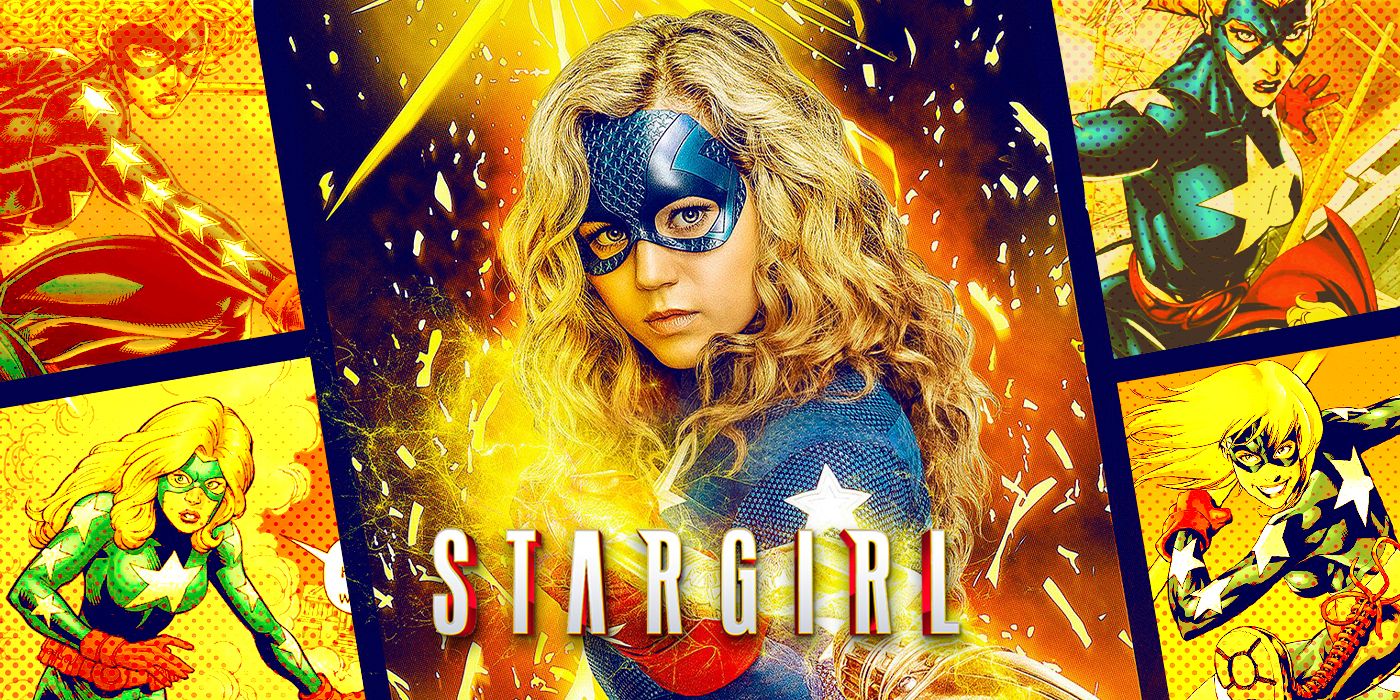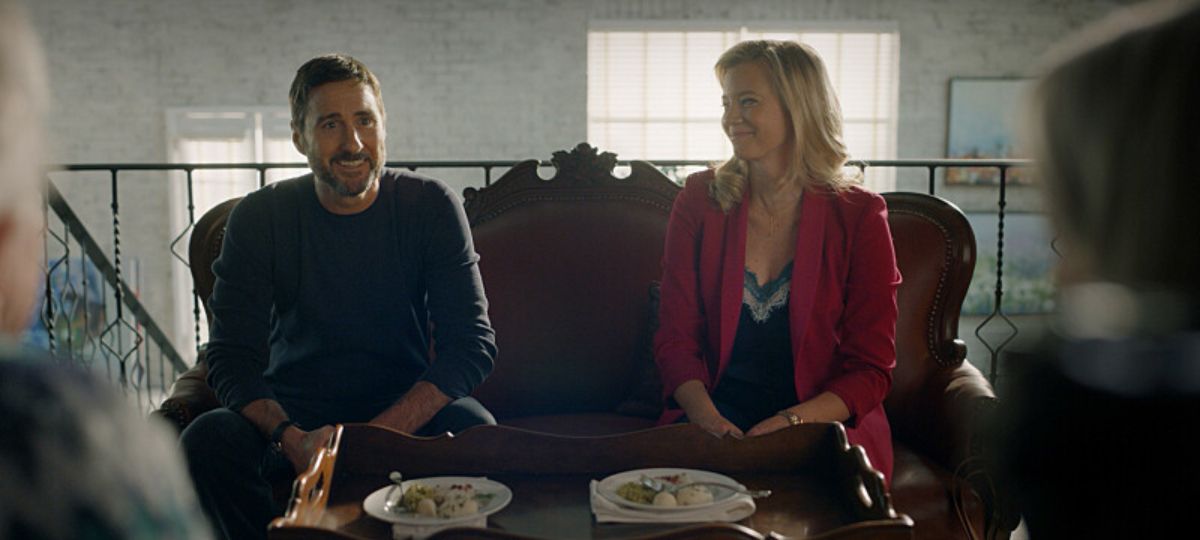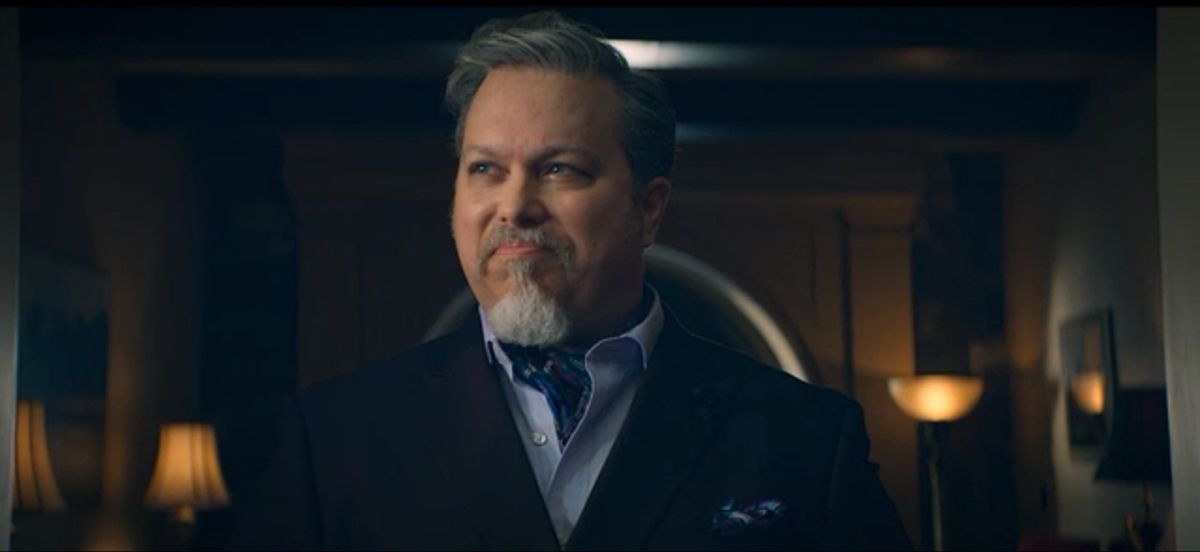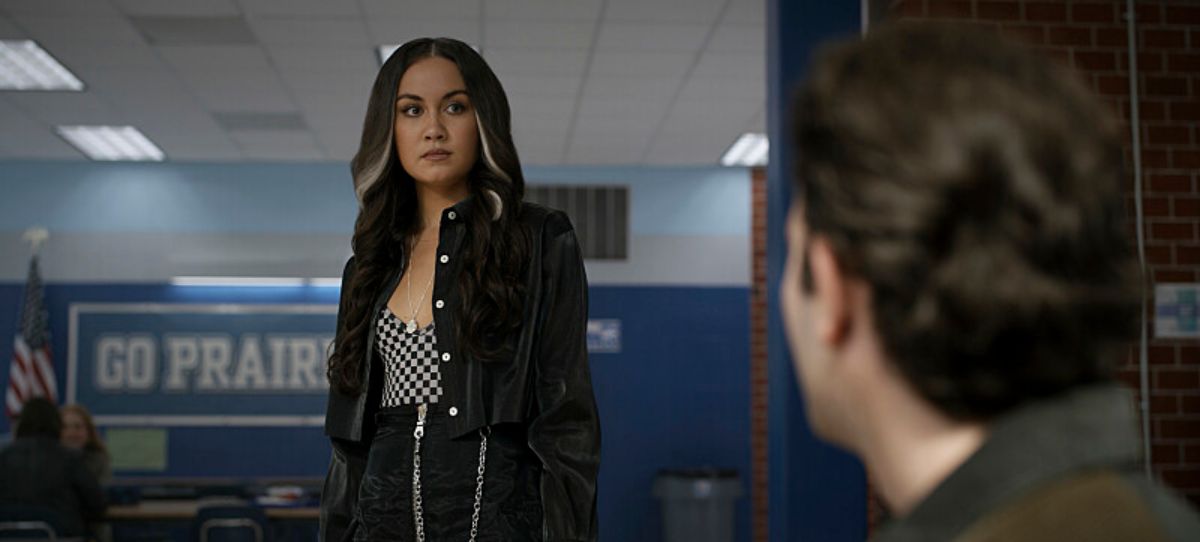Editor's note: The below contains spoilers for Season 3 of Stargirl.Redemption arcs are hard to get right. For them to mean anything, the character must have done something (or multiple things) suitably awful, or else there's not much of a redemption to be had. But the more vile things the character has done, the harder it will be for the audience to accept their change of heart and not get frustrated wondering why this horrible person hasn't been punished for their actions. But on DC's Stargirl (created by Geoff Johns) punishment is not a victory, it's a tragic conclusion to a story that could have gone differently.
In its third season, the show brings this idea to the forefront, forcing its heroes and villains to coexist in Blue Valley and reckon with the lies and trauma that both divide them and inextricably bind them together. In particular, the Crocks (Neil Hopkins and Joy Osmanski), the Gambler (Eric Goins), and Cindy Burman (Meg DeLacy) all seek to change for the better for their own reasons, and the way Stargirl treats these arcs makes each of them sympathetic and compelling characters.
The Crocks Are Earnestly Working to Improve Themselves
The Crocks made their first efforts toward leaving villainy behind them in Stargirl's second season, when they helped the Justice Society of America (JSA) defeat Eclipso (Nick Tarabay). In Season 3, they've moved into the house next door to the titular Stargirl Courtney Whitmore (Brec Bassinger) and her family and are trying to live normal lives, often to comedic results. Paula, formerly the villain Tigress, struggles to make friends with Courtney's mother Barbara (Amy Smart) and to integrate herself into the Blue Valley Rotary Club, while her husband Larry, formerly the villain Sportsmaster, regularly breaks into the Whitemore-Dugan household in an effort to ensure they're being healthy but at the same time seems unable to meaningfully connect with Courtney's stepfather Pat Dugan (Luke Wilson).
While these scenes are often played for laughs, with the Crocks dutifully playing the role of goofy eccentric neighbors, there's a more meaningful undertone to their stories. Paula and Larry are ill-equipped for normal life having spent much of their adult life with only other dysfunctional supervillains as their peers, never learning how to make meaningful emotional connections, or even developing skills or interests outside their super villainy and athletics.
But there is hope for growth. As this season has progressed, Paula has latched onto Barbara, at first as an attempt to earn her daughter a place on the JSA, but these efforts have slowly shifted into the beginnings of a genuine friendship. Barbara taught Paula how to bake for the Rotary Club and provided insight into what's expected of Paula as a member of the neighborhood, efforts that Paula seems to genuinely appreciate. Paula seems so devoted to her new friend that she goes so far as to threaten one of Barbara's coworkers who was giving her a hard time so that he'd cooperate and treat Barbara with more respect at work. While not the most healthy expression of friendship, this is still a moment of growth as Paula uses her skills as a supervillain to help a friend rather than achieve a nefarious goal.
The Gambler Was Putting In the Work
After disappearing at the end of Season 1, the Gambler returned to Blue Valley in the Season 3 premiere, "The Murder." When he arrived, he assured everyone that his days as a villain were behind him and that he only wanted to find his estranged daughter, so he could attempt to reconnect with her. However, his plans were interrupted when he's murdered outside his trailer home, kicking off the central plot of the season as both heroes and villains race to find his killer. For the early parts of the investigation, it seemed likely that the Gambler was murdered because of his villainous past, but it quickly became clear this wasn't the case. The Gambler had been earnest about trying to turn over a new leaf, having stopped blackmailing the Crocks and paying back all the people he owed money to months ago, taking tangible action to right his past wrongs. In this light, his murder takes on an ever more tragic light, preventing him from continuing on his path toward a better life.
Cindy Grapples With Her Trauma
Of all the villains on the show, Cindy Burman has been the most persistent thorn in the side of Courtney and the JSA. From doing her father's (Dragon King, played by Nelson Lee) bidding in Season 1, to assembling her own team of young supervillains to enact her revenge against Courtney and the JSA in Season 2, she's been causing problems for our heroes since the show began. But in Season 3 she's trying to do better, going so far as to join the JSA and try to be a hero. While Courtney is supportive of this turn of events, the other members of the JSA distrust Cindy, often trying to leave her out of meetings and expressing their resentment toward her presence on the team.
Their coldness is understandable, given all Cindy has done to them over the past two seasons, but it becomes a self-fulfilling prophecy as every harsh word and exclusion only confirms to Cindy that she's right about herself, that she's a horrible monster who can never be better. This comes to a head when Yolanda (Yvette Monreal) discovers that Cindy has the Gambler's laptop, a key piece of evidence that was missing from the murder scene. As they fight Cindy's sleeve is torn open, revealing that her arm is covered in green scales like her father was before his death. The experiments her father performed on her that gave Cindy her powers have had unexpected side effects, and Cindy is physically turning into the monster she already thinks she is. Her deepest insecurity displayed for all to see, Cindy lashes out at the only person who believes in her, revealing to the rest of the JSA that Courtney has been training Cameron Mahkent (Hunter Sansone), the son of the villain Icicle (Neil Jackson), to use his powers without telling them. As Cindy stalks away from the fight, having just cut off her only consistent supporter, it's clear just how deeply her trauma and self-loathing go.
None of these characters are fully redeemed yet, and some of them may not make it all the way — the Gambler has certainly been robbed of that chance — but every time they slip up, Stargirl makes it clear that it's a tragic moment. The villains here are people too, with families and needs, and desires that are often just as noble as the heroes'. While never fading entirely into naive idealism (some villains will still refuse to grow when given the opportunity), Stargirl as a show holds the same optimistic view as its title character: that villains are better dealt with by extending a helping hand rather than a fist.




